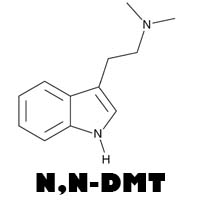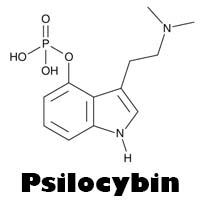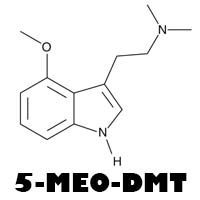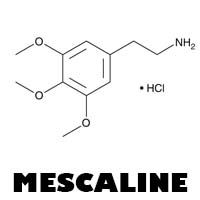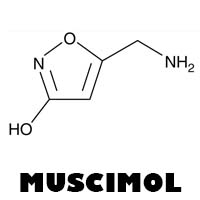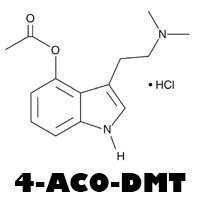The Role of Psychedelics in Addiction Treatment
Addiction is a complex and pervasive issue that affects millions of people worldwide. Traditional treatments, including medication and behavioral therapy, often have limited success rates. This has led researchers to explore alternative approaches, such as psychedelic therapy, to help those struggling with addiction. In this blog post, we'll explore the role of psychedelics in addiction treatment and how these substances can offer new hope for recovery.
Understanding Addiction
Addiction is characterized by compulsive substance use despite harmful consequences. It often involves physical and psychological dependence, making it challenging to overcome. Common addictions include alcohol, nicotine, opioids, and stimulants.
How Psychedelics Can Help
Psychedelics, such as psilocybin, LSD, and ibogaine, have shown promise in treating addiction by addressing its underlying psychological and emotional causes. These substances can facilitate profound changes in perception, cognition, and emotional processing, which are essential for recovery.
Psilocybin and Addiction
Psilocybin, the active compound in magic mushrooms, has been studied for its potential to treat various addictions, including nicotine and alcohol dependence.
1. Clinical Trials and Findings
Clinical trials have shown that psilocybin-assisted therapy can significantly reduce cravings and increase abstinence rates in individuals addicted to nicotine and alcohol. Participants often report a greater sense of control over their addiction and a renewed commitment to sobriety.
Ibogaine and Opioid Addiction
Ibogaine, derived from the African iboga plant, has gained attention for its potential to treat opioid addiction. It is known for its intense and long-lasting effects, which can reset the brain's reward system and reduce withdrawal symptoms.
2. Mechanism of Action
Ibogaine works by interrupting the addictive patterns of behavior and providing insights into the root causes of addiction. It can alleviate withdrawal symptoms and reduce cravings, making it easier for individuals to transition to a drug-free life.
Ayahuasca and Addiction
Ayahuasca, a traditional Amazonian brew containing DMT, has been used in ceremonial settings for healing and spiritual growth. Recent studies suggest it may also be effective in treating addiction.
3. Therapeutic Benefits
Ayahuasca ceremonies can help individuals confront and process traumatic experiences, leading to emotional healing and a reduction in addictive behaviors. The intense introspective experience can foster a greater understanding of the self and the factors contributing to addiction.
LSD and Addiction
LSD has been explored as a treatment for various addictions, including alcoholism. Early studies showed promising results, and recent research is beginning to revisit its potential.
4. Psychological Insights
LSD can provide users with deep psychological insights and a new perspective on their behavior, helping them to break free from addictive patterns. Its long-lasting effects can facilitate significant and lasting changes in thought processes and behavior.
Challenges and Considerations
While psychedelic therapy shows promise, it is not without challenges. Legal and regulatory barriers, the need for professional guidance, and potential risks associated with unsupervised use are important considerations.
5. Safety and Supervision
Psychedelic therapy should always be conducted under the supervision of trained professionals. This ensures the safety and well-being of the patient and helps maximize the therapeutic benefits.
Integration and Long-Term Benefits
The benefits of psychedelic therapy often extend beyond the immediate experience. Integration, the process of reflecting on and incorporating insights from the psychedelic experience, is crucial for long-term recovery from addiction.
6. Continued Support
Ongoing support from therapists, support groups, or other mental health professionals is essential for maintaining the gains made during psychedelic therapy. This support can help patients develop new coping strategies and sustain their progress.
Conclusion
Psychedelics offer a promising new approach to addiction treatment. By addressing the psychological and emotional roots of addiction, substances like psilocybin, ibogaine, and LSD can help individuals achieve lasting recovery. As research continues and legal barriers are addressed, psychedelic therapy may become an increasingly accessible and effective treatment option for those struggling with addiction.
Suggested Images for the Blog Post
- Understanding Addiction: Infographics explaining addiction mechanisms and common substances.
- Psychedelics and the Brain: Diagrams showing how psychedelics affect brain function and reward systems.
- Psilocybin Clinical Trials: Photos from clinical trials and therapy sessions involving psilocybin.
- Ibogaine Treatment: Images of ibogaine plants and treatment settings.
- Ayahuasca Ceremonies: Photos of traditional ayahuasca ceremonies and settings.
- Therapeutic Integration: Photos of therapy and support group meetings focused on integrating psychedelic experiences.
